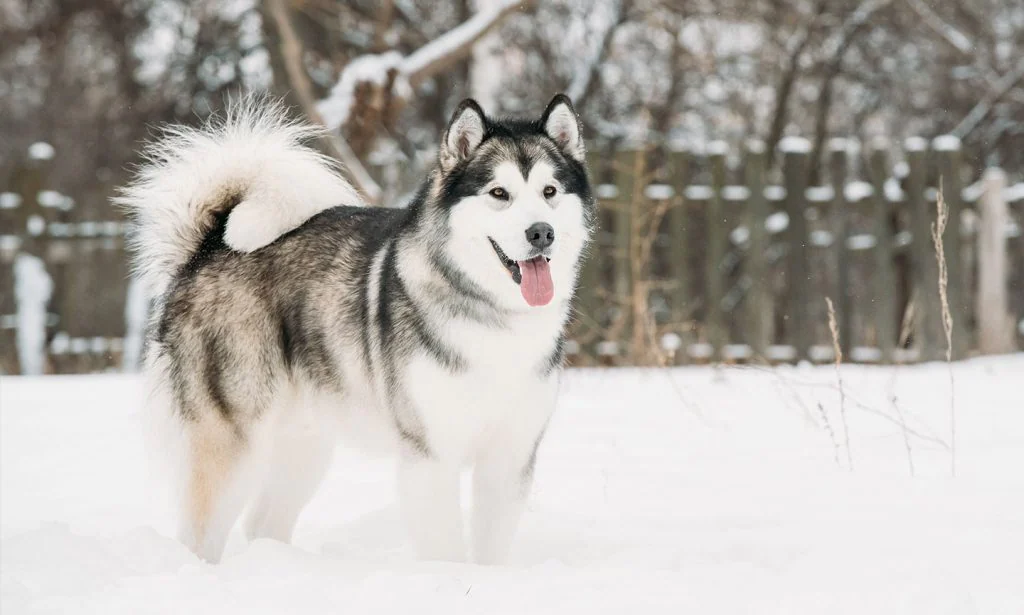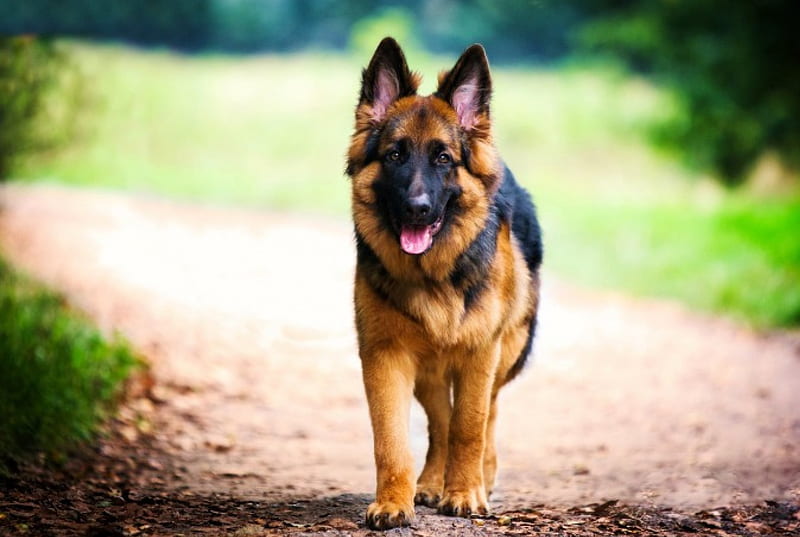
Introduction
The German Shepherd Dog was developed in Germany in the late 19th century by Captain Max von Stephanitz. The breed was created to be a versatile working dog with intelligence, strength, and loyalty. The breed gained popularity during and after World War I due to its use as a military working dog. Today, the German Shepherd Dog is still a popular breed for working roles and as family pets.
Personality traits of the breed
Initially they tend to maintain a certain distance from others, but once they The German Shepherd breed is known for its reserved and discerning personality rather form a bond, they exhibit remarkable loyalty. They are approachable and affable with their family, but in the face of a threat, they can be fierce and protective, which makes them an ideal choice as watchdogs.
This breed possesses high intelligence and is highly responsive to training. They thrive when they are given tasks to perform and can be trained to carry out a broad range of activities, such as alerting a deaf person to the sound of a doorbell or finding a person buried under an avalanche.
Relationship with their owner

German Shepherds are widely acclaimed for their unwavering loyalty towards their owners. As a herding breed, they are self-assured, courageous, and naturally protective of their owner. It is often questioned whether German Shepherds develop strong bonds with just one person, given their inherent traits.
German Shepherds are frequently spotted working with a single handler, and they become 100% devoted to that person. They are willing to take any measures necessary to protect their leader, including risking their life, braving danger, and following orders without delay.
In such situations, the answer is affirmative – German Shepherds indeed form a strong bond with one person, and they take pleasure in doing so. These working dogs are typically reserved with outsiders and may display suspicion, which are also characteristic traits of the breed.
Potential behavioral issues and how to address them
German Shepherds can be a fantastic choice for dog owners. They are highly intelligent, brimming with personality, and show great affection towards those they love. However, like any other breed, German Shepherd dogs can develop bad habits if not properly trained and managed.
- Defensive aggression
- Dominance
- Mouthiness
- Seperation anxiety
- Excessive barking
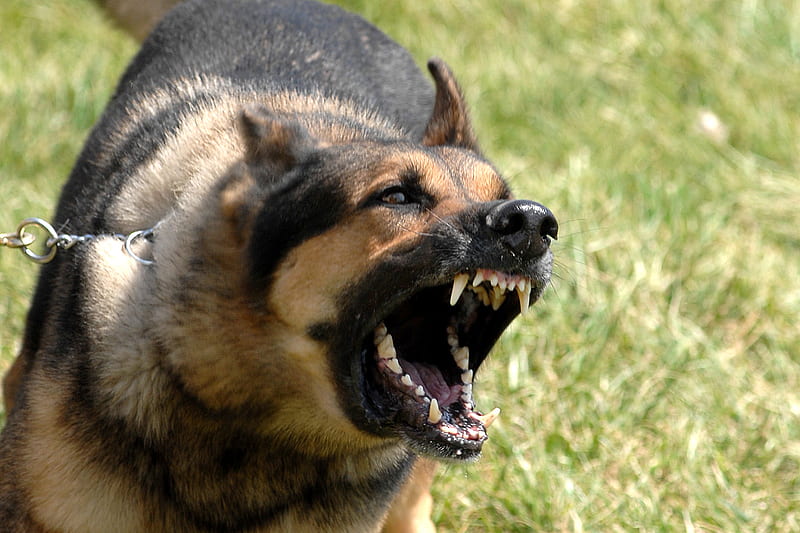
The following are various methods to address behavior issues that may arise in German Shepherds due to a lack of proper training, handling, and socialization.
- Hyperactivity
- Whining
- Jumping
- OCD
- Destructiveness
- Fear-Based reactivity
Understanding Aggression in German Shepherds
Explanation of aggressive behavior in German Shepherds
German Shepherds were originally bred for protection, which means they have territorial and protective instincts that other breeds may not possess. However, this does not inherently make them dangerous. The topic of German Shepherd aggression is surrounded by mixed opinions and science that supports both sides. In most cases, aggressive behavior in German Shepherds stems from the owner’s actions. Proper socialization and training are necessary for German Shepherds to learn how to control their territorial instincts, or else they may become aggressive towards people who are not a threat, such as family friends.
When owners fulfill their responsibility to provide training and socialization, German Shepherds can be extremely gentle and loving dogs. However, some owners may adopt a German Shepherd for the wrong reasons, such as the belief that they are ready-made guard dogs, without adequate knowledge or understanding of their needs. In other cases, owners may struggle to provide the necessary care and socialization for their German Shepherds, resulting in the dog’s socialization level improving as they mature. While they may receive proper care as adults, they may have been kept isolated as puppies, affecting their socialization.
Signs of aggressive behavior
Signs of Aggression
- Biting another person or an object.
- Bullying.
- Destroying property.
- Excluding others.
- Gossiping.
- Having difficulty calming yourself down after exerting aggressive behavior.
- Hitting another person or an object.
- Ignoring someone on purpose.
Causes of aggression in German Shepherds
A German Shepherd exhibiting aggression is originating from a distinct psychological state than a dominant one. Dominant behavior is demonstrated by a dog to assert authority, whereas the underlying factor of almost all aggression is fear. Therefore, when a German Shepherd exhibits aggressive behavior, it is not attempting to establish dominance, despite how it may appear. Rather, there is either a primal instinct or a learned fear resulting from a past experience that is causing the dog to react with aggression.
- Fearful aggression
- Defensive aggression
- Aggression due to pain
- Possessive
- Territorial aggression
- Predatory aggression
- Protective aggression
- Frustrated agression
Health and Lifespan
Reported lifespan range
The German Shepherd dog is a larger breed with several outstanding attributes and typically has an average lifespan of 9-13 years.
Health issues that can affect lifespan
The lifespan of a German Shepherd may be affected by various health issues, including but not limited to the following:
- Inability to stand.
- Blood clotting.
- Multiskeletal disorders.
- Heart disease.
- Dental disease.
- Bloat.
- Obesity.
- Otitis externa (ear infection).
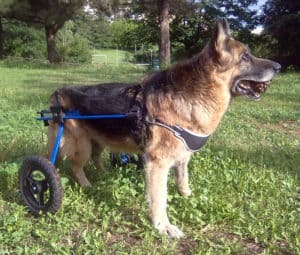
Tips for maintaining a healthy German Shepherd Dog
German Shepherds are prone to a variety of health issues, including but not limited to:
- Hip dysplasia
- Elbow dysplasia
- Gastric dilatation and volvulus (bloating)
- Degenerative myelopathy
- Eye problems
- Degenerative myelopathy
- Epilepsy
- Hemophilia
- Diabetes
- Cataracts.
Training for German Shepherds
15 German Dog Commands to Learn Vocabulary with Your Pup
- Bring (fetch)
- Aus (down/let go)
- Bleib (stay)
- Fuß (heel)
- Hier/komm (here)
- Lauf (go)
- Gib Laut (speak)
- Fass (bite)
- Nein/pfui (no)
- Sitz (sit)
- Platz (lay)
- Stopp/halt (stop)
- Such (search)
- Gib Pfötchen/fünf (shake, gimme five)
- Braver Hund (good dog)
Tips for teaching each command effectively
- Start with basic commands: Begin with simple commands such as “sit,” “stay,” and “come.”
- Use positive reinforcement: Reward your dog with praise and treats when they respond correctly to a command.
- Be consistent: Use the same commands and methods every time you train, and ensure everyone in your household is consistent.
- Keep training sessions short: Short, frequent training sessions will prevent boredom or frustration.
- Be patient: Teaching commands to a German Shepherd takes time and patience.
- Use hand signals: Pair verbal commands with hand signals to reinforce understanding.
- Train in different environments: Practice commands in various environments to ensure your dog understands them in any situation.
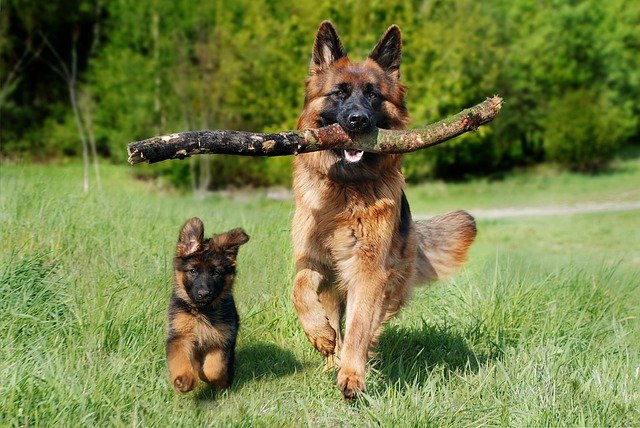
Techniques for socializing a German Shepherd with humans and other animals
German Shepherd puppies are known for their lively energy, intelligence, and natural curiosity about their surroundings. These dogs crave human interaction and require positive experiences to flourish. Socialization is a crucial aspect of raising a healthy and well-adjusted German Shepherd. Proper socialization involves exposing a puppy to a variety of experiences, including but not limited to meeting different people and animals, exploring new environments, encountering unfamiliar sounds and textures, and interacting with various objects. A well-socialized German Shepherd puppy will develop into an obedient and socially accepted adult dog with a well-regulated temperament.
To socialize your German Shepherd puppy effectively, it is important to invest time and patience in the process.
Here are 7 easy ways to socialize your German Shepherd puppy
- Build his explorers’ confidence
- Lower his threat threshold
- Take him outdoors
- Improve his sitting discipline
- Have friends and family come over
- Let him meet friends outside
- Take him to meet other dogs
Food for German Shepherds
Can German Shepherds eat eggs
While German Shepherds can consume eggs, it is important to regulate their intake. Eggs contain protein, vitamin A, vitamin B12, essential amino acids, and fatty acids which are beneficial to a dog’s health. However, it is important to note that other nutrients present in eggs are not required in large amounts for dogs.
In fact, eggs contain very important minerals and vitamins that are essential for your German Shepherd dog.
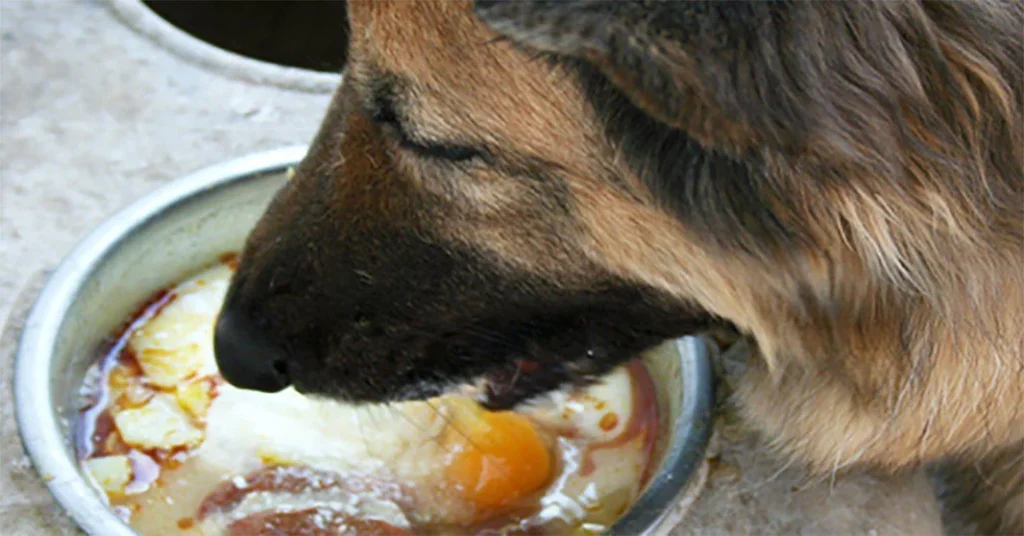
Nutrition includes:
- Iron
- Fatty Acids
- Folate
- Protein
- Riboflavin
- Selenium
- Vitamin A
- Vitamin B12
Can German Shepherds eat mangoes
German Shepherds are able to consume mangoes, which serve as a rich source of vitamins A and C, in addition to fiber. This fruit can help to promote healthy skin and a lustrous coat in dogs. Nonetheless, it is crucial to remove the mango pit and skin prior to feeding it to your German Shepherd.
Additionally, it is recommended to offer only a small amount of mango initially, in order to observe your dog’s reaction to the new food. Overconsumption of mango may result in digestive problems in certain dogs.
Homemade diets and raw feeding
German Shepherds can be fed a homemade diet or a raw food diet, but it is important to ensure that the diet is balanced and meets the nutritional requirements of the dog. Consultation with a veterinarian or a veterinary nutritionist is highly recommended to ensure that the diet provides all the necessary nutrients. Homemade diets should include a balance of protein, carbohydrates, fats, vitamins, and minerals. Raw food diets involve feeding raw meat, bones, and organs, but there is a risk of bacterial contamination and imbalanced nutrition. Again, consultation with a veterinarian or a veterinary nutritionist is strongly advised before implementing a raw food diet for a German Shepherd.
Conclusion
Final thoughts on German Shepherd Dog
German Shepherds are an intelligent, loyal, and versatile breed that can make excellent companions, working dogs, and family pets. Proper training and socialization are crucial to ensure they become well-adjusted and well-behaved dogs. With good care, exercise, and nutrition, they can live long, healthy lives and bring joy to their owners. However, it’s important to remember that they are a large and active breed that requires a commitment to care for properly.



